Lecturers
All of our lecturers are specialised in different areas of law. Interacting with them and participating in discussions during the International Winter University is a unique feature of our program. Below you can take a look at the lecturers of this year's Winter University and the previous ones.
Lecturers 2024

Yasmin Afina is a Researcher for the Security and Technology Programme at UNIDIR, where her research covers the intersection between international security, international law and artificial intelligence. Yasmin is also a PhD Researcher in law at the University of Essex . Her research looks into identifying key international humanitarian law considerations for the development, testing and evaluation of AI-enabled technologies for military targeting.
Yasmin previously worked as Research Fellow at Chatham House, where she led the Institute’s work on AI policy, and notably testified in front of the UK House of Lords’ AI in Weapon Systems Select Committee. Her past research experience and interests also cover nuclear weapons policy, outer space security, and wider international security and policy issues surrounding emerging technologies, including neurotechnology, quantum technologies, and cyber.
Yasmin has published over a dozen research papers, op-eds and commentaries on technology policy and nuclear non-proliferation and disarmament, and her work has been cited by a number of media outlets, including the BBC, Politico, and Al Jazeera.
Yasmin holds an LLM from the Geneva Academy of International Humanitarian Law and Human Rights, an LL.B. from the University of Essex, as well as a French Bachelor of Laws and Postgraduate degree (Maîtrise) in International Law from the Université Toulouse I Capitole. Yasmin speaks English, French and Indonesian.

Juan Diego Arregui Acosta is an Ecuadorian Lawyer with an LLM in Legal Theory, and a Master in Law Research (c), he is currently pursuing a European Master in Law, Data and Artificial Intelligence and a research associate at the DCU Law and Technology Research Cluster. His main area of focus is Ethics of AI and AI Regulation.

| Dr León Castellanos-Jankiewicz is Researcher in International Law at the Asser Institute for International and European Law and Academic Coordinator of the Netherlands Network for Human Rights Research. His work focuses on international human rights law, the history of international law and minority protection. Prior to taking his position at the Asser Institute, León was Max Weber Postdoctoral Fellow at the European University Institute, Florence. He holds a PhD in International Law from the Geneva Graduate Institute of International and Development Studies and an LLB from the Universidad Anáhuac-Mayab, Mexico. León is the author of several articles and book chapters addressing various aspects of international human rights law, and he has delivered expert legal opinions at various international organizations and governmental institutions. He sits on the Advisory Committee of Global Action on Gun Violence, and is an Associate Member of the Consejo Mexicano de Asuntos Internacionales. |
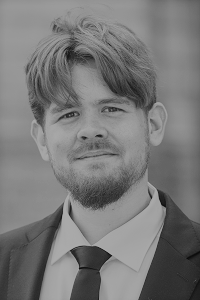
|
Barry de Vries is a Research Associate at the Chair of Public Law and International Law at the Justus Liebig University Giessen and Associate Fellow at PRIF's research department International Institutions. He is specialized in International Law, especially International Criminal Law, International Humanitarian Law, Arms Control Law and Human Rights Law. |
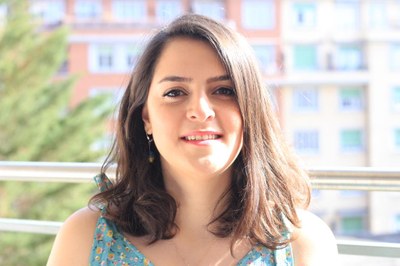
Farnaz Dezfouli Asl is an LL.M graduate from the Geneva Academy of International Humanitarian Law and Human Rights (2019). She holds a Master’s degree in Public International Law from Tarbiat Modares University in Tehran (2018) and a Bachelor’s degree in Law from Guilan University in Rasht (2013). She has several years of experience working for the United Nations, NGOs and the private sector on topics such as private security, business and human rights, the protection of refugees and labour rights in Iran and Geneva. Prior to herwork with the chair, she worked as a Human Rights Associate with the Office of the High Commissioner of Human Rights (OHCHR) in Nouakchott, Mauritania. She conducted training and capacity building activities for the security forces including the military, gendarmerie, police and peacekeeping missions on IHL, IHRL, gender and immigration issues.
At the moment, she works as a research associate on the "Dynamics of Security Project" and is a PhD candidate in Public International Law under the supervision of Dr Professor Marauhn.
Her academic interests include the interplay between IHRL and IHL, the use of force in counter-terrorism operations, and the Implementation of IHL through human rights mechanisms and history and sources of IHL
Dr. Omar Fassatoui is an UN Human Rights Officer with experience in the field in Tunisia and Mauritania. He is experienced in working on non-discrimination, engaging with the government, parliament and national human rights mechanisms (NMRF, NPM, NHRI), supporting UN treaty bodies work and special procedures visits. He is also a certified trainer in human rights with long experience in capacity building of civil society and human rights defenders.
Before OHCHR, Dr. Omar Fassatoui worked as a lawyer and as a lecturer/Post doc researcher with field research in the MENA region and published articles.
|
Dr. Robert Heinsch is an Associate Professor of Public International Law at the Grotius Centre for International Legal Studies of Leiden University, and is the Director of its Kalshoven-Gieskes Forum on International Humanitarian Law at Leiden University and the founder of the Leiden IHL clinic. From 1 April 2018 to 28 February 2019 he held the DAAD Guest Chair for International Humanitarian Law, International Criminal Law and Applied Legal Theory at the Institute of Peace and Armed Conflict (IFHV) of Bochum University in Germany. During his time at the IFHV he successfully created the Bochum IHL Clinic. He has published numerous articles in the field of international criminal law and international humanitarian law, including a monograph on the jurisprudence of the Yugoslavia and Rwanda War Crimes Tribunals and its impact on the development of IHL. Previously, he has worked as a Legal Advisor in the IHL Department of the Red Cross Headquarters in Berlin, and as a Legal Officer in the Trial Chamber of the International Criminal Court in The Hague. |

Dr. Elisabeth Hoffberger-Pippan is Senior Researcher at the Peace Research Institute Frankfurt (PRIF) in the international security research department. She is also part of the CBWNet (CBW network for a comprehensive reinforcement of norms against chemical and biological weapons), a project funded by the German Ministry of Education and Research. Her main research areas are humanitarian law, human rights, and arms control, with a specific focus on emerging technologies and military robotics. Before joining PRIF, Dr. Hoffberger-Pippan was head of “iPRAW”, the International Panel on the Regulation of Autonomous Weapons, a project funded by the German Federal Foreign Office.

Prof. Dr. Shiri Krebs is a Professor of Law at Deakin University and Law and Policy Co-Lead at the Cyber Security Cooperative Research Centre (CSCRC). In 2023-2024 she is a Visiting Professor at Stanford University and a Senior Humboldt Fellow at Hamburg University. She is an affiliate scholar at Stanford University Center for International Security and Cooperation (CISAC) and serves as the elected Chair of the international Lieber Society on the Law of Armed Conflict. Her current funded projects include an Australian Research Council (ARC) DECRA Fellowship studying the effects ofpredictive technologies on preventive counterterrorism, at the intersection of law, science, and technology. Prof Krebs’ research on international fact-finding, biases in counterterrorism decision-making, and human-machine interaction in drone warfare, has influenced decision-making processes through invitations to brief high-level decision-makers, including at the United Nations (CTED, Office of the Secretary-General), the United States Department of Defence, and the Australian Defence Force. Her recent research awards include the ‘Researcher of the Year’ Award (Australian Women in Law Awards, 2022), the David Caron Prize (American Society of International Law, 2021), the Australian Legal Research Awards (finalist, Article/Chapter (ECR), 2022), and the Vice-Chancellor’s Researcher Award for Career Excellence (Deakin, 2022). Before joining Deakin University, Prof Krebs has taught in several law schools, including at Stanford University, University of Santa Clara, and the Hebrew University of Jerusalem, where she won the Dean’s award recognizing exceptional junior faculty members. She earned her Doctorate and Master Degrees from Stanford Law School with Honors, as well as LL.B. and M.A., both magna cum laude, from the Hebrew University of Jerusalem.

Prof. Dr. Christopher Kuner has been active in EU and global data protection law since the early 1990s as a lawyer, author, and academic. He is currently Affiliate Professor at the University of Copenhagen and Senior Privacy Counsel in the Brussels office of Wilson Sonsini, as well as being a member of the European Commission's Multisectoral Stakeholder Group on the GDPR. He has been a professor of law at the VUB in Brussels and a visiting professor at the University of Cambridge, the European University Institute, Chuo University in Tokyo, and the Oxford Internet Institute, and has lectured at the Hague Academy of International Law, as well as being a partner at various international law firms. The author of numerous articles and books, Dr. Kuner is editor-in-chief of the journal International Data Privacy Law and one of the principal editors of the commentary on the GDPR published by Oxford University Press, as well as co-editor of the Handbook on Data Protection in Humanitarian Action published by the International Committee of the Red Cross. He was awarded a medal from the Consumer Affairs Agency of the government of Japan for his services to data protection law.

| Thilo Marauhn is a German expert on international law. He holds the Chair for Public Law and International Law at the Justus Liebig University Giessen and heads the research group on international law at the Leibniz Institute Hessische Stiftung Friedens- und Konfliktforschung / Peace Research Institute Frankfurt (PRIF). Educated at the Universities of Mannheim, Wales (Aberystwyth, U.K.), Bonn and Heidelberg, Professor Marauhn holds a law degree (state exam, equivalent to J.D., Heidelberg), a Postgraduate Diploma in International Law and Relations (Wales), an M.Phil. in International Relations (Wales), and a Dr. iur. utr. (Heidelberg). He earned his venia legendi in public law, international and European law from the University of Frankfurt/Main. Marauhn has been a visiting professor at various universities, including the University of Lapland (Rovaniemi, Finland), the University of Bergen (Norway), the University of Warwick (UK) and the University of Wisconsin – Madison Law School (US). Since 2001, he has held a permanent visiting professorship in Constitutional Theory at the Law Faculty of the University of Lucerne (Switzerland). Since 1995, Marauhn has been a member of Germany’s National IHL (International Humanitarian Law) Committee and its chairman since 2014. From 2008 onwards, Marauhn has been a member of the Advisory Board of the German Foreign Office on the United Nations. In 2011, he was elected as a member of the International Humanitarian Fact-Finding Commission (IHFFC) for the term from 2012 to 2016. Marauhn was re-elected in 2016. In 2015, he was elected First Vice-President and later President (2017) of the Fact-Finding Commission. Since 2005, he has been the academic director of the “International Summer University” of the Justus Liebig University in Giessen. From 2009 onwards, Marauhn has been the co-director of the “US-German Summer School in International and Comparative Law”, currently together with professors Anuj Desai (University of Wisconsin) and Edward Fallone (Marquette University). From 2009 to 2013 and from 2017 until 2019, Marauhn served as an elected member of the Senate of the Justus Liebig University in Giessen. In 2016, he was a visiting scholar in the research group “The International Rule of Law – Rise or Decline?” in Berlin. In 2018, Marauhn was a visiting scholar at the Lauterpacht Centre for International Law and at Sidney Sussex College, University of Cambridge (UK). |

Eliška Mocková works as a delegate for the International Committee of the Red Cross. Previously, she worked for the Human Rights Monitoring Mission in Ukraine (United Nations) and the Public Defender of Rights in the Czech Republic. She holds a master's degree in political science and in law (Charles University in Prague) and an LLM in humanitarian law and human rights (Geneva Academy). She is also pursuing a PhD in law at the Charles University in Prague.
Sabrina Rewald is a Research Associate at the Kalshoven-Gieskes Forum on International Humanitarian Law of Leiden University and a Supervisor of the Leiden International Humanitarian Law Clinic. Sabrina earned her advanced LL.M. in European and International Human Rights Law cum laude from Leiden University. Prior to shifting to international law Sabrina worked in civil litigation and as a solicitor in Ontario, Canada, as well as in reproductive and gender justice advocacy in Washington, D.C. and Atlanta, Georgia, in the United States. Sabrina is a licensed attorney in Michigan, U.S. and Ontario, Canada.

Roger Smith is an English solicitor. He is a visiting professor at London South Bank University and an honorary one at the University of Kent. He was awarded an honorary doctorate by the University of Westminster and an OBE for services to access to justice. He began work in community law centres and moved to national third sector legal organisations as the solicitor for the Child Poverty Action Group and director of the Legal Action Group and JUSTICE. He has written extensively on matters relating to legal services and human rights. He has undertaken consultancy in various countries, largely in Eastern Europe. He was commissioned by an English foundation to cover developments in technology and legal services for around a decade from 2012

Ass. iur. Dipl.-Jur. Univ. Emre Türkmen is currently employed as a practicing attorney and serves as a Research Associate at the Frankfurt School of Finance and Management in the Master's programs M&A and Financial Law. Additionally, he is pursuing his doctorate under the supervision of Prof. Dr. Marauhn at the Justus-Liebig-University in Giessen, specializing in the field of international law. He completed his legal studies at the Justus-Liebig-University in Giessen, with a focus on European and public international law. During his studies, he participated in seminars in Geneva and Luxembourg and completed internships, including one at the European Court of Justice in Luxembourg. Furthermore, he represented the university in international competitions, including those in Panama, Italy, and Macedonia. After completing his studies, he initiated his doctoral research in the field of nanotechnology and public international law. In November 2023, he successfully completed his Second State Examination, undertaking various stages in Giessen, Frankfurt, and Miami (USA) as part of his legal clerkship, ultimately attaining the status of a licensed attorney.
|
Sannimari Veini studied law at the University of Turku, Finland, and graduated with an LL.M. degree in 2021. During her studies, Sannimari specialized in public international law and wrote her Master’s thesis with the title “Redrawing the Red Line: Researching Possibilities of International Law to Secure Accountability for the Use of Chemical Weapons in Syria Through Individual Criminal Responsibility”. From May 2022 onwards Sannimari has been working as a research assistant at the Chair of Public Law and International Law and is doing her doctorate under the supervision of Prof. Dr. Thilo Marauhn. Sannimari is also an Associated Researcher at the Peace Research Institute Frankfurt and CBWNet project. Sannimari’s main research interests include issues of arms control and disarmament, and the interaction of these fields with other fields of international law, and politics. She is especially focused on chemical weapons and questions surrounding different avenues of accountability for their use. |
Lecturers 2023
Prof. Dr. Michael Bothe is Professor emeritus of Public Law at the J.W. Goethe University Frankfurt/Main. He held a Chair in Public International Law at the Universities of Hannover and Frankfurt (where he also was Dean), served as a visiting professor in many universities around the world, and was inter alia coordinator of the Tacis Project for creating an Institute of European Law at the Moscow State Institute of International Relations (MGIMO). He was a research fellow at the Max Planck Institute of Comparative Public Law and International Law in Heidelberg, later served as chair of the Institute’s Scientific Advisory Board and is currently a member of the Kuratorium. He was president of the German Society for International Law and of the European Environmental Law Association as well as President of the International Humanitarian Fact-finding Commission and Chairperson of the German Committee for International Humanitarian Law. He served as a delegate or adviser in a number of international conferences (including the Diplomatic Conference for the Reaffirmation and Development of International Humanitarian Law 1974-1977) and as a counsel before the International Court of Justice and the German Federal Constitutional Court. Distinctions: Prix Giuseppe Ciardi of the International Society for Military Law and the Law of War, Elisabeth Haub Prize for International Environmental Law, Prize of the International Institute of Humanitarian Law (San Remo), Henry Dunant Medal of the International Movement of the Red Cross and Red Crescent. He is the author of many books and articles on questions of international law (in particular as it relates to legal restraints on the use of military force and to the protection of the environment), comparative public law, European law and constitutional law.
Kristoffer Burck studied International Relations and Public Law at the University of Erfurt and the Kyung Hee University in Korea (Bachelor of Arts) and the interdisciplinary course Law and Politics of International Security at the Vrije Universiteit Amsterdam (LLM). During his study he worked as a student assistant at the chair for Public Law, International Law and European Integration at the University of Erfurt and was a Research Associate in the Area of International und Transnational Criminal Law at the Public International Law and Policy Group. He finished various internenship, such as in the Ministry of Foreign Affairs, the T.M.C Asser Instituut und the PAX for Peace.
Since May 2022 he works as a Research Assistant in the Project CBWNet and does research under the lead of Professor Dr. Thilo Marauhn the national, regional, and international Normative regime for the prevention of chemical and biological weapons.
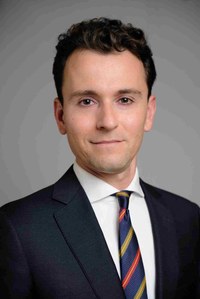
| Dr. León Castellanos-Jankiewicz is Researcher in International Law at the Asser Institute for International and European Law and Academic Coordinator of the Netherlands Network for Human Rights Research. His work focuses on international human rights law, the history of international law and minority protection. Prior to taking his position at the Asser Institute, León was Max Weber Postdoctoral Fellow at the European University Institute, Florence. He holds a PhD in International Law from the Geneva Graduate Institute of International and Development Studies and an LLB from the Universidad Anáhuac-Mayab, Mexico. León is the author of several articles and book chapters addressing various aspects of international human rights law, and he has delivered expert legal opinions at various international organizations and governmental institutions. He sits on the Advisory Committee of Global Action on Gun Violence, and is an Associate Member of the Consejo Mexicano de Asuntos Internacionales. |
|
Louise Crowley is a Professor in Family law in the School of Law, University College Cork, Ireland where she is the Director of the LLM (Children’s Rights and Family Law). She is the author of the leading Irish text Family Law (Roundhall Thomson) and her research focusses on the regulation of families and relationship breakdown in modern Ireland, and the nature of inter parte financial obligations post-divorce. Professor Crowley is recognised as a national voice on intimate partner violence having published widely on the challenges of gender-based violence and the shortcomings of national and international domestic violence and intimate partner abuse laws.
|

Barry de Vries is a Research Associate at the Chair of Public Law and International Law at the Justus Liebig University Giessen and Associate Fellow at PRIF's research department International Institutions. He is specialized in International Law, especially International Criminal Law, International Humanitarian Law, Arms Control Law and Human Rights Law.

Farnaz Dezfouli Asl is an LL.M graduate from the Geneva Academy of International Humanitarian Law and Human Rights (2019). She holds a Master’s degree in Public International Law from Tarbiat Modares University in Tehran (2018) and a Bachelor’s degree in Law from Guilan University in Rasht (2013). She has several years of experience working for the United Nations, NGOs and the private sector on topics such as private security, business and human rights, the protection of refugees and labour rights in Iran and Geneva. Prior to herwork with the chair, she worked as a Human Rights Associate with the Office of the High Commissioner of Human Rights (OHCHR) in Nouakchott, Mauritania. She conducted training and capacity building activities for the security forces including the military, gendarmerie, police and peacekeeping missions on IHL, IHRL, gender and immigration issues.
At the moment, she works as a research associate on the "Dynamics of Security Project" and is a PhD candidate in Public International Law under the supervision of Dr Professor Marauhn.
Her academic interests include the interplay between IHRL and IHL, the use of force in counter-terrorism operations, and the Implementation of IHL through human rights mechanisms and history and sources of IHL.
Dr. Stavros Evdokimos Pantazopoulos is a Researcher in International Law with the Asser Institute. Stavros is also a post-doctoral researcher with the Toxic Crimes Project of the Erik Castrén Institute at the University of Helsinki, and a Fellow of the Athens Public International Law Center. He is a founding member of the Environmental Peacebuilding Association and the Chair of its Law Interest Group. Stavros is a member of the World Commission on Environmental Law and the Managing Editor of the Yearbook of International Humanitarian Law . Prior to joining the Asser Institute, Stavros was the Legal and Policy Analyst of the Conflict and Environment Observatory, a UK-based NGO aiming to raise awareness of the environmental impacts of armed conflict. His research focuses on the legal aspects of environmental protection during and after armed conflict.
Stavros obtained his PhD degree in international law from the European University Institute for his thesis ‘Protecting the Environment Against the Impacts of Armed Conflict’. He holds three LLM degrees in international law (University of Athens, LSE, EUI) and visited the University of Michigan Law School as Michigan Grotius Research Scholar (2016). Stavros has been a visiting researcher at iCourts (2019) and a Teaching Fellow at the Euro-American programme of SciencesPo, Reims campus (2017-2018). In 2015, he was an assistant to the then ILC Special Rapporteur on the topic ‘Protection of the Environment in Relation to Armed Conflicts’, Ambassador Marie Jacobsson, and during this year’s ILC session Stavros assisted the current ILC Special Rapporteur on the same topic, Ambassador Marja Lehto.
Stavros has taught public international law, international humanitarian law, international environmental law, international human rights law, and law of the use of force. He has published in the fields of international environmental law, international humanitarian law, international cultural heritage law, and autonomous weapons systems.
Dr. Omar Fassatoui is an UN Human Rights Officer with experience in the field in Tunisia and Mauritania. He is experienced in working on non-discrimination, engaging with the government, parliament and national human rights mechanisms (NMRF, NPM, NHRI), supporting UN treaty bodies work and special procedures visits. He is also a certified trainer in human rights with long experience in capacity building of civil society and human rights defenders.
Before OHCHR, Dr. Omar Fassatoui worked as a lawyer and as a lecturer/Post doc researcher with field research in the MENA region and published articles.
Dr. Robert Heinsch is an Associate Professor of Public International Law at the Grotius Centre for International Legal Studies of Leiden University, and is the Director of its Kalshoven-Gieskes Forum on International Humanitarian Law at Leiden University and the founder of the Leiden IHL clinic. From 1 April 2018 to 28 February 2019 he held the DAAD Guest Chair for International Humanitarian Law, International Criminal Law and Applied Legal Theory at the Institute of Peace and Armed Conflict (IFHV) of Bochum University in Germany. During his time at the IFHV he successfully created the Bochum IHL Clinic. He has published numerous articles in the field of international criminal law and international humanitarian law, including a monograph on the jurisprudence of the Yugoslavia and Rwanda War Crimes Tribunals and its impact on the development of IHL. Previously, he has worked as a Legal Advisor in the IHL Department of the Red Cross Headquarters in Berlin, and as a Legal Officer in the Trial Chamber of the International Criminal Court in The Hague.
Prof. Dr. Claudia Maria Hofmann holds the Chair of Public Law and European Social Law with a Focus on Interdisciplinary Social Law Research at the European University Viadrina in Frankfurt (Oder). During her course of studies in law at the Ludwig Maximilian University of Munich and her mandatory legal apprenticeship, she worked, inter alia , at the Max Planck Institute for Social Law and Social Policy in Munich and for the German Agency for International Cooperation (GIZ) in Pretoria (South Africa). She holds two German law degrees (first and second legal state exam) and a doctorate in law (University of Kassel). With completing her habilitation (post-doctoral degree) at the University of Regensburg, Hofmann received the venia legendi for public law, international and European law, social law, sociology of law and comparative law. Before joining the European University Viadrina in 2020, she worked as an interim professor for public law with a focus on social law at the Goethe University Frankfurt am Main. Since 2018, Hofmann has been advising the German Trade Union Federation as a delegate in the Conference Committee on the Application of Standards at the International Labour Conferences of the International Labour Organization. Her research interests focus on questions at the interface between the “law in the books” and the legal reality. In this context, she has, for example, published work on the national influence of international social standards in South Africa, legal responses to social inequality in international, European and German law or questions concerning the guarantee of socio-economic rights for asylum seekers and refugees in Germany.
Nadya E. Japaz is a lawyer from Mendoza, Argentina, specialized in Human Rights and International Law, with experience in International and Public Policy. Since last Year she is research associate at the Chair of Public Law and Human Rights, Prof. Dr. Michaela Hailbronner, Justus Liebig University Giessen. Her professional path began in 2014, as a member of her University’s International Public Law Moot Court Team for the Charles Rousseau Competition (twice: France and Canada). In Mendoza she has worked for two years in the Senate House as an advisor on Public Policies. In July 2020 she was granted the Universidad Nacional de Cuyo Research Scholarship to investigate Good Governance Principles Delimitation.
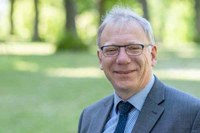
Thilo Marauhn is a German expert on international law. He holds the Chair for Public Law and International Law at the Justus Liebig University Giessen and heads the research group on international law at the Leibniz Institute Hessische Stiftung Friedens- und Konfliktforschung / Peace Research Institute Frankfurt (PRIF). Educated at the Universities of Mannheim, Wales (Aberystwyth, U.K.), Bonn and Heidelberg, Professor Marauhn holds a law degree (state exam, equivalent to J.D., Heidelberg), a Postgraduate Diploma in International Law and Relations (Wales), an M.Phil. in International Relations (Wales), and a Dr. iur. utr. (Heidelberg). He earned his venia legendi in public law, international and European law from the University of Frankfurt/Main. Marauhn has been a visiting professor at various universities, including the University of Lapland (Rovaniemi, Finland), the University of Bergen (Norway), the University of Warwick (UK) and the University of Wisconsin – Madison Law School (US). Since 2001, he has held a permanent visiting professorship in Constitutional Theory at the Law Faculty of the University of Lucerne (Switzerland). Since 1995, Marauhn has been a member of Germany’s National IHL (International Humanitarian Law) Committee and its chairman since 2014. From 2008 onwards, Marauhn has been a member of the Advisory Board of the German Foreign Office on the United Nations. In 2011, he was elected as a member of the International Humanitarian Fact-Finding Commission (IHFFC) for the term from 2012 to 2016. Marauhn was re-elected in 2016. In 2015, he was elected First Vice-President and later President (2017) of the Fact-Finding Commission. Since 2005, he has been the academic director of the “International Summer University” of the Justus Liebig University in Giessen. From 2009 onwards, Marauhn has been the co-director of the “US-German Summer School in International and Comparative Law”, currently together with professors Anuj Desai (University of Wisconsin) and Edward Fallone (Marquette University). From 2009 to 2013 and from 2017 until 2019, Marauhn served as an elected member of the Senate of the Justus Liebig University in Giessen. In 2016, he was a visiting scholar in the research group “The International Rule of Law – Rise or Decline?” in Berlin. In 2018, Marauhn was a visiting scholar at the Lauterpacht Centre for International Law and at Sidney Sussex College, University of Cambridge (UK).
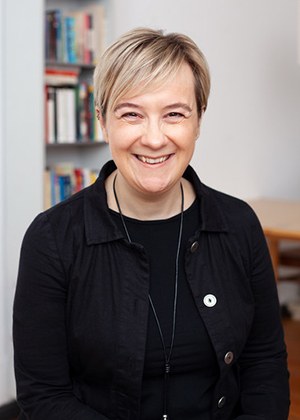
| Dr. Sorcha MacLeod is an Associate Professor and Marie Skłodowska Curie Individual Fellow at the Centre for Private Governance (CEPRI) in the Faculty of Law at the University of Copenhagen. She is an international human rights law expert specialising in researching and teaching business, human rights and security, in particular the human rights impacts and regulation of Private Military and Security Companies. She holds a PhD from the University of Glasgow, UK, and an LLM in International Natural Resources Law and LLB (Hons) in Scots Law from the University of Dundee, UK. Prior to moving to Copenhagen she taught at Free University Berlin and at the University of Sheffield, UK. In July 2018 she was appointed for six years as an independent human rights expert to the UN Working Group on the use of Mercenaries under the Human Rights Council's Special Procedures. She is an invited expert to the UN Open-ended Inter-governmental Working Group on PMSCs and participated in the drafting of the Montreux Document on PMSCs and the International Code of Conduct for Private Security Providers. She has Observer Status at the International Code of Conduct Association. She advises governments, industry and civil society organisations on business, human rights and security issues. |
|
Victoria Scheyer is a research associate at Peace Research Institute Frankfurt, where she researches about feminist foreign policy, the Women, Peace and Security Agenda and resistances to gender-sensitive human rights in peacebuilding. At the Gender, Peace and Security Center at Monash University she is pursuing her doctoral thesis about the dynamics of gender at radical right movements transnationally in Europe. Victoria Scheyer is co-president of the German section of the Women’s International League for Peace and Freedom, where she is advocating for the implementation of the Women, Peace and Security Agenda, including international disarmament and gender equality. |
| Prof. Rhona Smith is professor of international human rights at Newcastle Law School. She has previously worked in various universities in the UK and held visiting positions at a number of institutions overseas. Her principal areas of interest are international human rights, human rights/civil liberties and public law. Her publications range across human rights including UN monitoring systems, human rights education and the rights of vulnerable groups. She was the United Nations special rapporteur for Cambodia from 2015-2021. |
Dr. Rebecca Smyth is a lecturer in Law at Birmingham City University. She completed her LLM and PhD in International Human Rights Law at the University of Edinburgh. Dr Smyth specialises in intersectional feminist approaches to international human rights law, particularly abortion access and sexual and reproductive health and rights (SRHRs). Her research is informed by an interest in the (sometimes productive) tensions arising from historically oppressed groups engaging with the language and mechanisms of human rights.
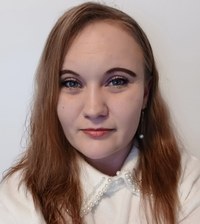
Sannimari Veini studied law at the University of Turku, Finland, and graduated with an LL.M. degree in 2021. During her studies, Sannimari specialized in public international law and wrote her Master’s thesis with the title “Redrawing the Red Line: Researching Possibilities of International Law to Secure Accountability for the Use of Chemical Weapons in Syria Through Individual Criminal Responsibility”. From May 2022 onwards Sannimari has been working as a research assistant at the Chair of Public Law and International Law and is doing her doctorate under the supervision of Prof. Dr. Thilo Marauhn.
Sannimari’s main research interests include issues of arms control and disarmament, and the interaction of these fields with other fields of international law, and politics. Especially she is focused on chemical weapons and questions surrounding different avenues of accountability for their use.
Lecturers 2022
|
Dr. Sumudu Atapattu is the Director of Research Centers and Senior Lecturer at the University of Wisconsin Law School in Madison. She teaches in the area of International Environmental law and climate change and human rights. She holds an LL.M. (Public International Law) and a Ph.D. (International Environmental Law) from the University of Cambridge, U.K., and is an Attorney-at-Law of the Supreme Court of Sri Lanka. She held a Senior Fulbright scholarship at the New York University Law School and the George Washington University Law School in 2000-2001. She taught International Law and Environmental Law as a Senior Lecturer at the Faculty of Law, University of Colombo, Sri Lanka for several years. In 2001 she served on a panel of experts on liability and compensation issues for the World Health Organization's proposed Framework Convention on Tobacco Control. She has many publications in the fields of international environmental law, environmental rights and international sustainable development law and is particularly interested in the link between human rights and the environment, especially, climate change. |
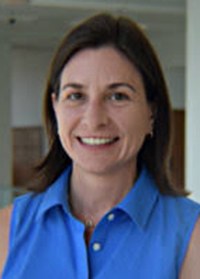
| Dr. Rebecca DeWinter-Schmitt is an expert in business and human rights, in particular pertaining to the private military and security industry. She is Senior Managing Director at Human Analytics, a risk management consultancy specializing in helping public and private organizations address human rights risks associated with operating in complex environments. Currently resident in Berlin, she is also a Senior Associate at twentyfifty, the leading German management consultancy for all matters pertaining to responsible business conduct. Until August 2019, she directed the Human Rights in Business Program housed at American University Washington College of Law’s Center for Human Rights & Humanitarian Law, where she led efforts to educate the legal and business communities on corporate responsibility issues and spearheaded a collaborative project to promote effective corporate human rights impact assessment. In various capacities, she has been involved in a variety of efforts to develop national and international standards for private security providers. Her publications examine soft law initiatives in the private security industry, and her research more broadly explores the effectiveness of multi-stakeholder corporate governance Until 2012, Dr. DeWinter-Schmitt was an Assistant Professor at American University’s School of International Service’s Peace and Conflict Resolution Program. From 1998 to 2002, she was a staff member of Amnesty International USA, first in its National Field Program and then as Program Associate to the Just Earth! Program on Human Rights and the Environment. For the last fifteen years, she has served on Amnesty International USA’s Business and Human Rights Group as a volunteer thematic expert. She received her PhD in international relations from American University’s School of International Service, and her master’s degree in political science with minors in economics and sociology from the University of Marburg, Germany. |

|
Michaela Hailbronner is a Professor of Public Law and Human Rights at the University of Giessen. Michaela completed two German law degrees at the University of Freiburg and the Kammergericht of Berlin before doing an LL.M. and a J.S.D. (doctorate) at Yale Law School (LL.M. 2010 and J.S.D. 2013). Previously, she worked at the Max Planck Institute for Comparative Public Law and International Law in Heidelberg (Germany), the University of Pretoria (South Africa), as a visiting professor at the University of Ottawa (Canada) and as a Senior Fellow at the University of Münster (Germany). Her analysis of German constitutionalism against a broader comparative background appeared in a paper that won the I.CON Inaugural Best Paper Award 2014 and in her first book Traditions and Transformations: The Rise of German Constitutionalism (Oxford University Press, 2015). Her more recent work has been in the field of comparative constitutional law and human rights, appearing inter alia in the American Journal of Comparative Law and the University of Toronto Law Journal . She is currently working on a new book project examining judicial responses to institutional failure in a range of domestic and international legal systems. |
|
Ezequiel Heffes is a Senior Policy and Legal Advisor at Geneva Call, a humanitarian NGO that promotes respect of humanitarian norms by armed non-State actors. He holds an LLM in IHL and Human Rights from the Geneva Academy, and a law degree from the University of Buenos Aires School of Law. He is finishing his PhD at the University of Leiden. Prior to joining Geneva Call, he worked as a field and protection delegate and as a head of office for the ICRC in Colombia, Afghanistan and the Democratic Republic of Congo. His monograph on detention by armed groups under international law is forthcoming with Cambridge University Press. He is also the co-editor of International Humanitarian law and Non-State Actors. Debates, law and Practice (Asser/Springer, 2020) and of Armed Groups and International Law. In the Shadowland of Legality and Illegality (Edward Elgar, Forthcoming). |

| Dr Sorcha MacLeod is an Associate Professor and Marie Skłodowska Curie Individual Fellow at the Centre for Private Governance (CEPRI) in the Faculty of Law at the University of Copenhagen. She is an international human rights law expert specialising in researching and teaching business, human rights and security, in particular the human rights impacts and regulation of Private Military and Security Companies. She holds a PhD from the University of Glasgow, UK, and an LLM in International Natural Resources Law and LLB (Hons) in Scots Law from the University of Dundee, UK. Prior to moving to Copenhagen she taught at Free University Berlin and at the University of Sheffield, UK. In July 2018 she was appointed for six years as an independent human rights expert to the UN Working Group on the use of Mercenaries under the Human Rights Council's Special Procedures. She is an invited expert to the UN Open-ended Inter-governmental Working Group on PMSCs and participated in the drafting of the Montreux Document on PMSCs and the International Code of Conduct for Private Security Providers. She has Observer Status at the International Code of Conduct Association. She advises governments, industry and civil society organisations on business, human rights and security issues. |
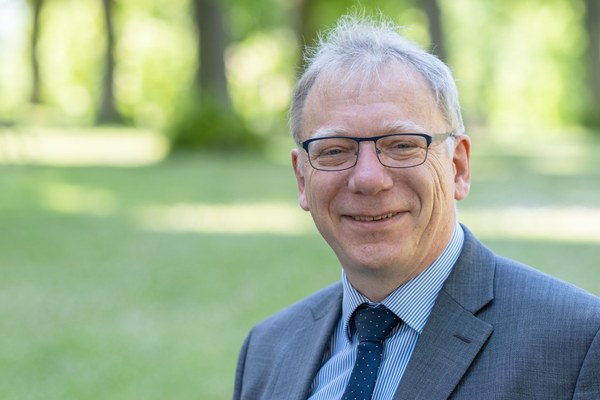
| Thilo Marauhn is a German expert on international law. He holds the Chair for Public Law and International Law at the Justus Liebig University Giessen and heads the research group on international law at the Leibniz Institute Hessische Stiftung Friedens- und Konfliktforschung / Peace Research Institute Frankfurt (PRIF). Educated at the Universities of Mannheim, Wales (Aberystwyth, U.K.), Bonn and Heidelberg, Professor Marauhn holds a law degree (state exam, equivalent to J.D., Heidelberg), a Postgraduate Diploma in International Law and Relations (Wales), an M.Phil. in International Relations (Wales), and a Dr. iur. utr. (Heidelberg). He earned his venia legendi in public law, international and European law from the University of Frankfurt/Main. Marauhn has been a visiting professor at various universities, including the University of Lapland (Rovaniemi, Finland), the University of Bergen (Norway), the University of Warwick (UK) and the University of Wisconsin – Madison Law School (US). Since 2001, he has held a permanent visiting professorship in Constitutional Theory at the Law Faculty of the University of Lucerne (Switzerland). Since 1995, Marauhn has been a member of Germany’s National IHL (International Humanitarian Law) Committee and its chairman since 2014. From 2008 onwards, Marauhn has been a member of the Advisory Board of the German Foreign Office on the United Nations. In 2011, he was elected as a member of the International Humanitarian Fact-Finding Commission (IHFFC) for the term from 2012 to 2016. Marauhn was re-elected in 2016. In 2015, he was elected First Vice-President and later President (2017) of the Fact-Finding Commission. Since 2005, he has been the academic director of the “International Summer University” of the Justus Liebig University in Giessen. From 2009 onwards, Marauhn has been the co-director of the “US-German Summer School in International and Comparative Law”, currently together with professors Anuj Desai (University of Wisconsin) and Edward Fallone (Marquette University). From 2009 to 2013 and from 2017 until 2019, Marauhn served as an elected member of the Senate of the Justus Liebig University in Giessen. In 2016, he was a visiting scholar in the research group “The International Rule of Law – Rise or Decline?” in Berlin. In 2018, Marauhn was a visiting scholar at the Lauterpacht Centre for International Law and at Sidney Sussex College, University of Cambridge (UK). |
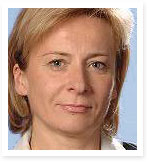
|
Dr. Elzbieta Mikos-Skuza is a senior lecturer at the Faculty of Law and Administration, University of Warsaw, Poland and a visiting professor at the College of Europe in Natolin. She is the Director of NOHA (consortium of European universities conducting programmes in humanitarian action) at the University of Warsaw and the Director of Master Studies on Humanitarian Action as well as Postgraduate Studies on Humanitarian Assistance. In 1982 she graduated with distinction from the Faculty of Law, University of Warsaw (Poland). She studied also at the Institute of Social Studies in The Hague (The Netherlands) where she attended two post-graduate programs: in International Law and Development (diploma with distinction in 1985) and in Development, Law and Social Justice (diploma in 1985). In 1991 she obtained a doctor's degree in law from the University of Warsaw. Since 1981 she has been volunteering with the Polish Red Cross. At present she is a vice-president of the PRC, member of its national board, president of the PRC Commission for International Humanitarian Law being responsible, among others, for international and national IHL courses organized by the PRC. She is an expert of the International Red Cross and Red Crescent Movement in numerous think tanks, panels and working groups. Since 2002 she has been a member (at present – first vice-president) of the International Humanitarian Fact Finding Commission established under Protocol Additional I of 1977 to the Geneva Conventions of 1949. She is also a full member of the San Remo International Institute of Humanitarian Law. Dr. E. Mikos-Skuza lectures during numerous courses organized by NOHA and the International Red Cross and Red Crescent Movement all over Europe and is the author of publications in English and in Polish (text-books, collections of documents, chapters of books and articles) on public international law and international humanitarian law of armed conflicts.
|
| Professor Rhona Smith is professor of international human rights at Newcastle Law School. She has previously worked in various universities in the UK and held visiting positions at a number of institutions overseas. Her principal areas of interest are international human rights, human rights/civil liberties and public law. Her publications range across human rights including UN monitoring systems, human rights education and the rights of vulnerable groups. She was the United Nations special rapporteur for Cambodia from 2015-2021. |
